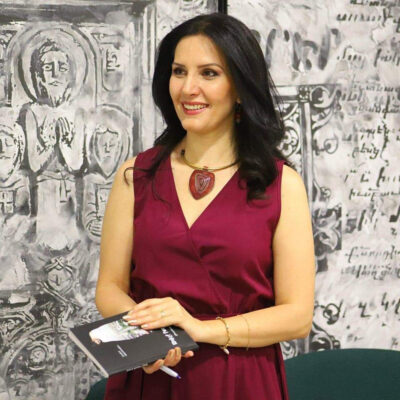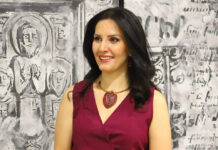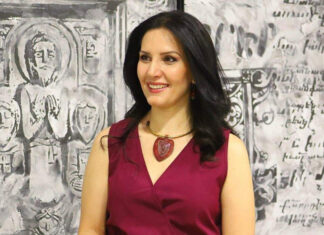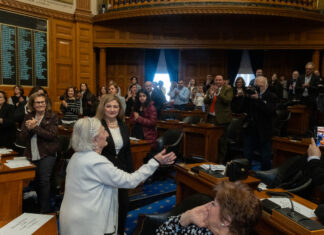By Aram Arkun
Mirror-Spectator Staff
CAMBRIDGE, Mass. — Prof. Fatma Muge Goçek gave a lecture titled “The Violence of Denial: Turkish Women’s Memories of Armenians, 1789-2009,” at the Massachusetts Institute of Technology (MIT) on November 3. Formally, it was the McMillan-Stewart Lecture on Women in the Developing World, with the co-sponsorship of MIT’s Women and Gender Studies Program, but what made it unusual was the other two cosponsors. This was one of the rare instances in the United States where an Armenian and a Turkish student association cosponsored a talk pertaining to the Armenian Genocide, and it was well attended, with at least 50 in the audience in the late afternoon.
The event was moderated by Lerna Ekmekcioglu, McMillan-Stewart Career Development Assistant Professor of History at MIT. Ekmekcioglu introduced the leaders of both student groups who spoke about their organizations briefly. She said, “To my knowledge this is the first event that the two societies have cosponsored. I think it is quite remarkable that they are doing this on a topic that continues to divide their peoples back at home. I’m quite inspired and encouraged by this unique example that they set for the rest of the MIT community and humanity. They expand the meaning of heritage — this is how I read their participation in this event — to include not just food and dance and sharing, but also other not so positive things, that include violence, the heritage of violence, which is being acknowledged…This is another proof that MIT is brave, visionary and innovative in humanities and humanity in general, not just in technology and science.” Goçek later added that when either Turkish or Armenian student associations invited her to speak she would state that she could accept only on the condition that the other group on campus invite her too, but this was the first time in 12 years that this has actually occurred.
The lecture itself was an introduction to Goçek’s new book, Denial of Violence: Ottoman Past, Turkish Present, and Collective Violence against the Armenians, 1789-2009 (Oxford University Press), presented from the perspective of gender with some additional information on the Turkish women writers covered in the volume. (The title of the MIT lecture was a play on the book title.) Goçek, as Ekmekcioglu pointed out in her introduction, is a professor of sociology and women’s studies at the University of Michigan, Ann Arbor, and is a prolific author of many books and articles.










